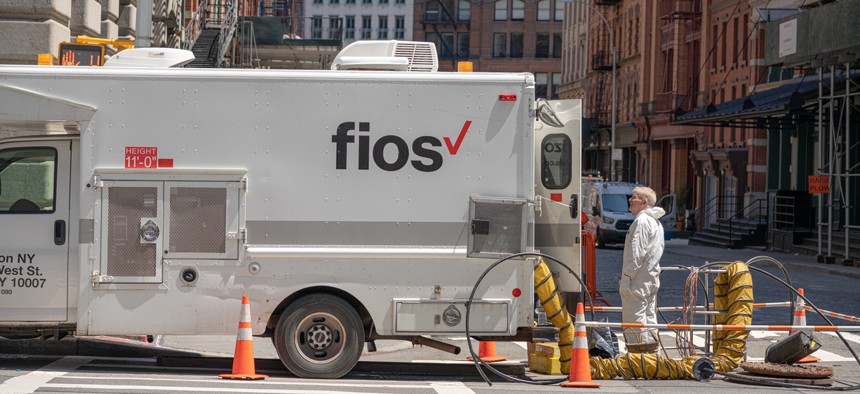States Launch Broadband Grant Programs with CARES Act Money

Shutterstock/BazDeas
Experts say broadband infrastructure projects will be more helpful in improving connectivity in the long run than the type of WiFi deployments that were quickly rolled out at the start of the coronavirus pandemic.
Federal CARES Act funding enabled states to put millions of dollars toward the expansion of internet access, with several states establishing new grant programs to build out broadband infrastructure.
Delaware, Idaho, Kansas, Mississippi, New Hampshire and South Carolina all used coronavirus relief money to pay for grants geared toward building out broadband infrastructure, according to researchers with Pew Charitable Trusts.
Kansas established an Office of Broadband Development and announced the award of $50 million in grants to 67 projects designed to improve broadband infrastructure across the state. Many of the various projects are expected to pay for installation of fiber internet connections in communities across the state.
“We will take on the critical work of helping unserved and underserved communities with technical assistance and funding expertise necessary to get them online,” said Stanley Adams, director of the Office of Broadband Development, when the initiative was announced last month.
Mississippi awarded 19 electric cooperatives with $73 million in emergency broadband grants to pay for internet expansion in rural parts of the state. And New Hampshire announced a grant program that will distribute $50 million to pay for projects to connect households with limited or slow internet service.
The newly established grant programs are primarily focused on extending “last mile” internet connections that may otherwise be too cost prohibitive in rural and remote areas, said Anna Read, a research officer with Pew’s broadband research initiative.
“The general focus on the residential last-mile infrastructure is in unserved or underserved areas of the state,” she said.
A $6.5 million grant that New Hampshire awarded in August will improve internet connectivity for about 3,000 properties in nine towns by completing last mile connections.
“There’s a lot of folks that have high speed broadband just a mile away from their home, but they never get it to their home, or to the public library or to the school,” said Gov. Chris Sununu when he announced the award.
To be eligible for CARES Act money, the projects must be completed by Dec. 30, leaving states with a short timeframe to identify qualifying projects and distribute the funds. That’s made it difficult for some states to coordinate projects in time.
When schools, libraries and other locations where people could log onto free public wi-fi closed at the start of the coronavirus pandemic, many state and local governments sought to meet the immediate connectivity needs of their residents. Efforts ranged from setting up WiFi hotspots in government building parking lots or school busses or obtaining laptops and data plans for students to use at home.
While states directed a significant amount of federal funding toward initiatives to address immediate needs, experts say investment in broadband infrastructure is more likely to improve connectivity in the long-term.
“There will be a need for continuing investment to truly close those gaps and access,” Read said.
Andrea Noble is a staff correspondent with Route Fifty.
NEXT STORY: Three Ways Governments Can Maximize Covid-19 Funding Now





